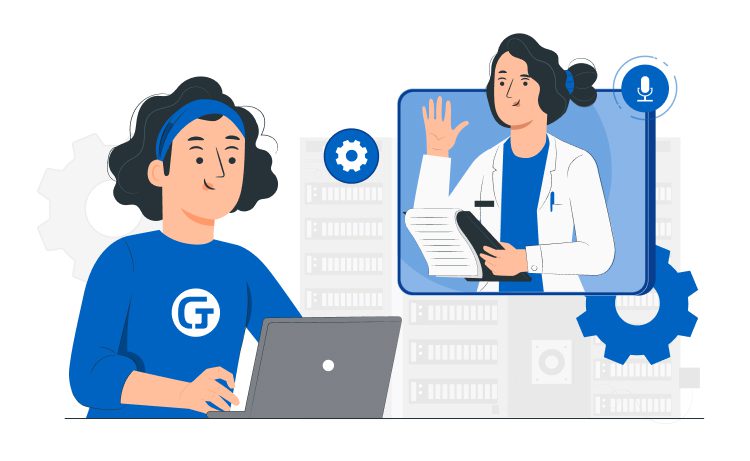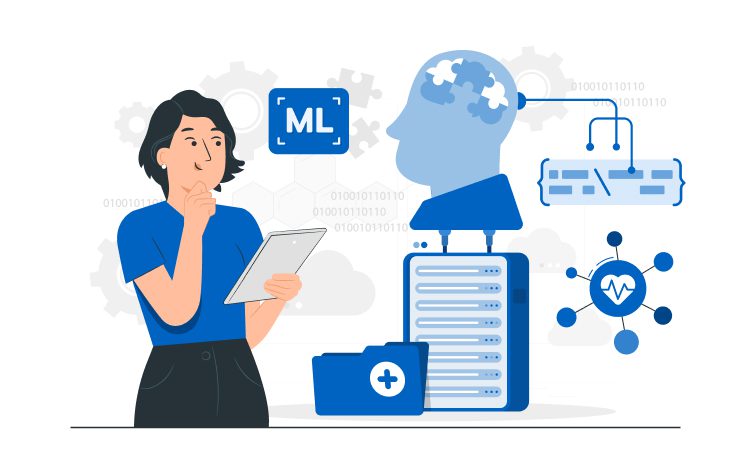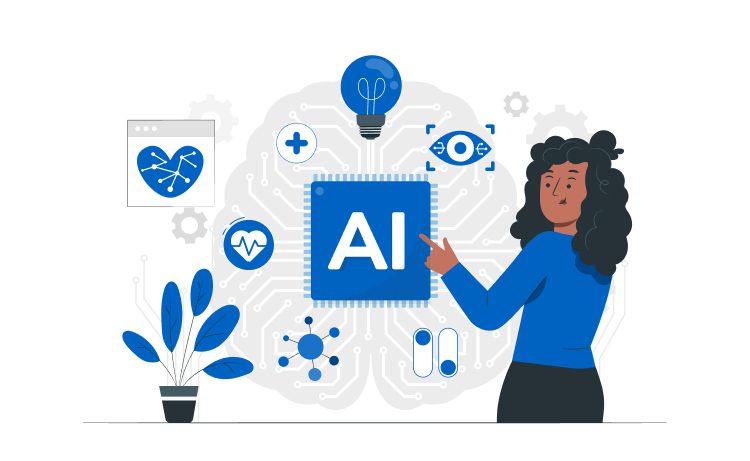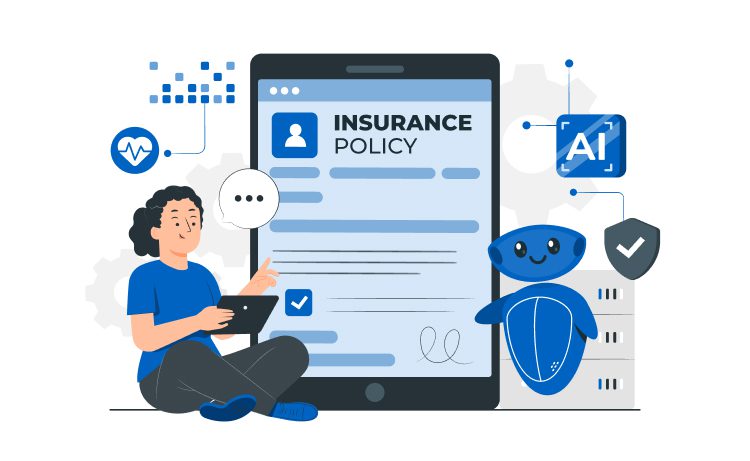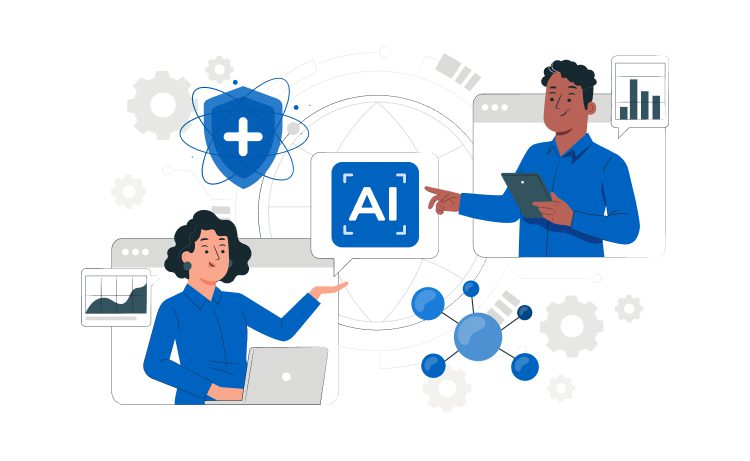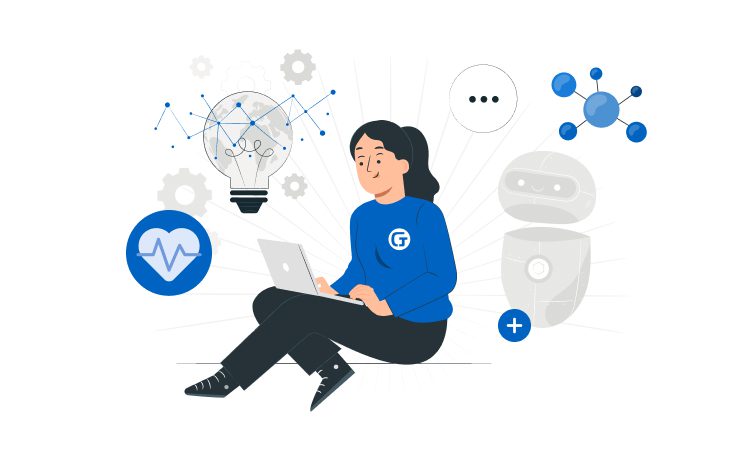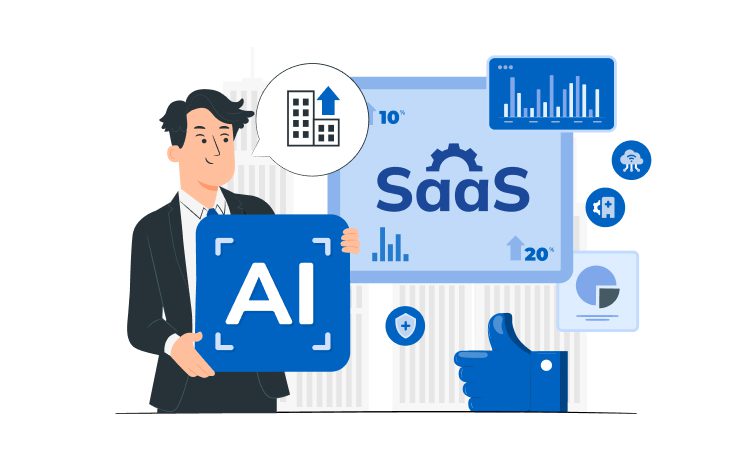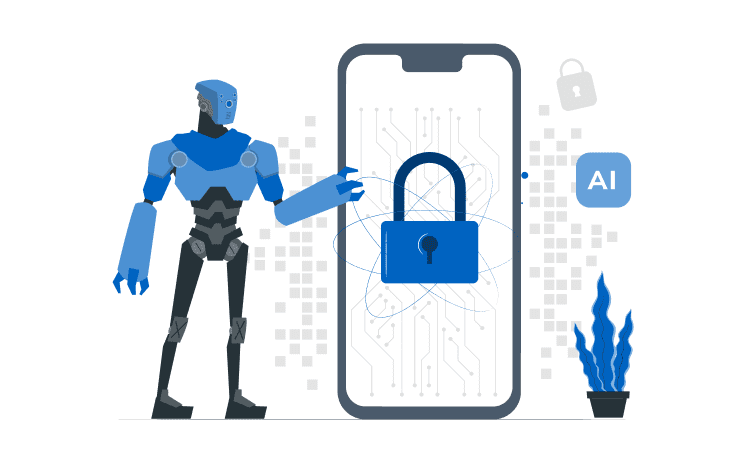
Regulation Compliance In Healthcare: How AI and ML Can Help



It’s no secret that the entire healthcare industry is in lockstep with regulatory compliance — especially when it comes to tech innovations.
Given the sensitive nature of medical data, any violations or discrepancies can result in costly and devastating consequences not only for patients but for healthcare software providers and medical institutions as well.
Speaking of technology and industry digitalization, it has become evident that compliance issues often stem from poor integration and intensified migration to cloud services.
Furthermore, many data-enabled solutions fail to comply with numerous industry regulations, which in turn, leads to data privacy issues.
The regulation issue throughout the healthcare sector is highly complex as there are so many regulations and rules that need to be adhered to which are constantly changing over time.
General rules, such as the EU’s GDPR, and medical specific laws, such as HIPAA in the US, are very protective of patient privacy. Additionally, a Medical Device Reporting (MDR) regulation issued by the Food and Drug Administration (FDA) in 2015, obliges medical device companies to report any unfavorable issues related to their products and services to the FDA.
As such, remaining compliant creates many challenges when digitalization and technology intervention crosses the healthcare industry.
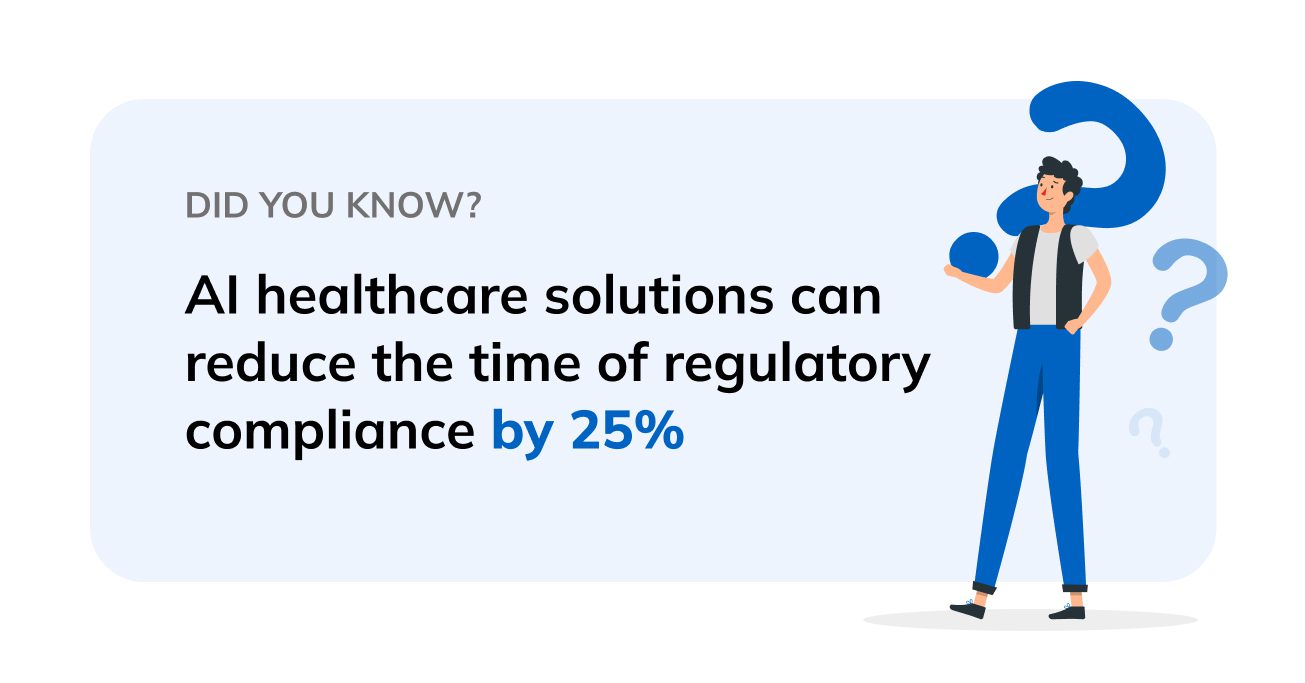
Apart from endless benefits, as underground data safety issues arose, people began to question the place of AI and ML within the healthcare industry.
Despite artificial intelligence and deep learning being the subjects of concern and suspicion when it comes to regulatory compliance and data safety, these technologies can assist with all types of medical compliance, including HIPAA, MDR, and other rules.
Content
Technologies like AI and ML can be used to ensure software compliance. In fact, 41% of healthcare executives listed AI as the technology that is expected to have the greatest impact when it comes to improving their company’s operations over the following three years.
Similar to ensuring the quality and control of medical administrative flows, diagnostics, patient care, and other areas where data-driven solutions can be applied, AI ensures the compliance of medical software providers, medical device providers, and healthcare institutions overall.
This data-driven approach delivers consistency and accuracy when it comes to dealing with regulatory compliance. It is essential for medical software solution providers to produce legally approved and compliant software or technology products to reach the healthcare market faster and succeed.
According to Hitachi, AI healthcare solutions can reduce the time of regulatory compliance by 25%.
AI ensures increased safety regarding the handling of confidential information, mitigation of risks, access control, increased data accuracy, instant response to new regulatory requirements, auto-filling, and cross-checking information.
All of these measures ultimately lead to better decision-making, reduced costs, improved product liquidity, and fewer risks.
Let’s explore some of the specific ways in which artificial intelligence and deep learning can ensure regulatory compliance, and in which regulatory areas it proves most rewarding.
As it is becoming increasingly applicable to digital platforms, data security is quickly becoming a hot-button issue in the healthcare industry.
According to Gartner, privacy regulations have emerged as the top risk factor for most organizations, including the healthcare sector. As 41 million patient records were breached in 2019, this issue cannot be overstated.
With the accumulation of sensitive patient information along with medical institution records and smart data from healthcare wearables, confidential data in all forms has become a target of devastating and expensive cyberattacks and security breaches.
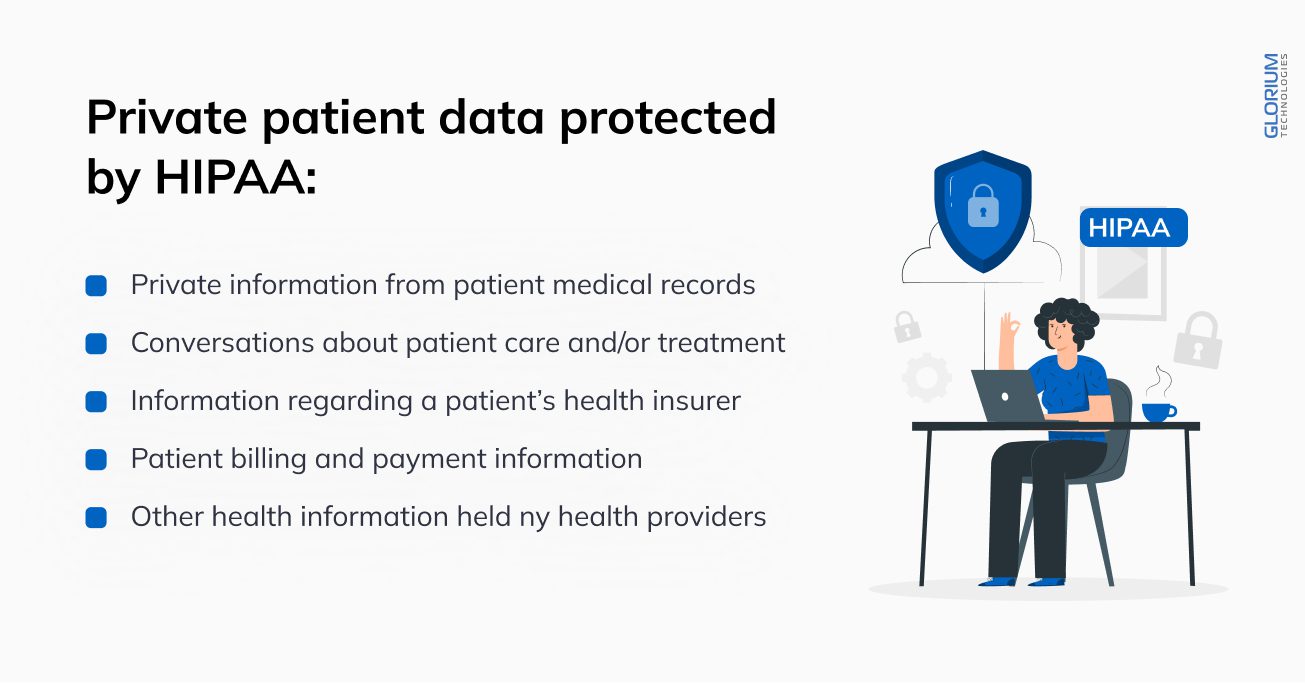
There is no shortage of cases when an occasional data breach or a systematic non-compliance issue with the HIPAA rules has resulted in massive losses.
Most recently, Excellus Health Inc., an American healthcare insurance provider, was ordered to pay $5.1 million to the Office for Civil Rights (OCR) at the U.S. Department of Health and Human Services (HHS) due to a breach that exposed the confidential information of over 9.3 million people.
As there are numerous data sources, genres, and layers, the discussion about artificial intelligence in relation to healthcare data security can be long and diverse.
As required by law under HIPAA, all hospitals, medical facility employees, healthcare providers, and their related contractors have to remain in compliance with these regulations when providing services and products.
In short, AI and deep learning algorithms greatly contribute to protecting private data, detecting violations, and enforcing compliance with HIPAA regulations across a particular organization.
Apart from data security and other common issues like unauthorized information access, another pain point of healthcare compliance is that specific rules and regulations constantly change.
Without the use of AI, it’s virtually impossible to monitor and adjust — on time — to policies that change overnight. AI does a great job detecting potential updates so medical organizations and service providers can immediately act on them. As a result, AI greatly reduces the time and resources needed to meet updated governmental privacy standards.
One of the most critical HIPAA requirements dictates that only authorized medical staff can access patient information and records. Still, internal snooping is a common occurrence in the healthcare industry.
In fact, a 2018 Verizon PHI Data Breach Report states that 56% of security interventions occur due to medical workers accessing information that they shouldn’t have access to in the first place — whether intentional or not.
Apart from properly educating employees, artificial intelligence and deep learning technologies are a great way to detect and prevent compliance violations.
Due to the sensitive nature of medical data, anticipating challenges and detecting patterns is extremely important in the dynamic environment of the healthcare industry.
AI-enabled technology can not only reduce risks and increase data protection, but it can also help analyze and predict possible threats via deep learning.
The ever-expanding pharmaceutical and drug industry is a critical branch of the healthcare industry, tied together by many regulations and policies, including FDA standards.
Issues involving inaccurate prescriptions, substance theft or misuse, drug diversion, and other pharma-related events are commonplace in the industry and often lead to major policy violations and fines.
In 2019, 148 million drug doses worth $183 million were lost due to theft or misuse — 77% of which were directly related to medical staff.
To reduce non-compliance in this area of the healthcare industry, artificial intelligence can be used to enforce regulation standards, help detect diversion and unwanted use cases, and monitor transactions to ultimately increase patient safety.
AI-enabled solutions ensure that all operations and transactions go through established flows and immediately notify professionals if any deviations from predetermined processes are detected.
These algorithms successfully handle payments and audits, making sure the pharmaceutical inventory numbers add up.
Artificial intelligence and algorithms not only detect and react to security alerts, but they also analyze and learn from behavioral patterns.
This way, healthcare technology companies that use AI solutions can anticipate reduced numbers of non-compliance instances, whether related to pharmacology misuse, theft, or other policy violations.
Ultimately, AI and ML lead to increased patient safety as they ensure correct dosage and prescriptions.
Pharmacovigilance is another vast sector where AI can be successfully applied to conduct supervision and analysis to determine whether a particular pre-approved treatment is effective for a patient.
As you can imagine, this area also falls under strict regulation and compliance. With deep learning and analytics, monitoring the effects of drugs and substances becomes more effective. It also ensures synchronization with newly approved drugs which are constantly being added to the ever-expanding list of certified drugs.
The complexity here lies within the disparate data sources and formats that need to be processed and analyzed. Traditionally, pharmacovigilance was executed by large teams of clinicians who collected reports on the effects of treatments and patients’ reactions to them.
Any report discrepancies in data processing were a potential risk for regulatory compliance. As such, the manual process was time-consuming, tedious, and risky.
With AI, data collection, analysis, and processing are streamlined and automated, which significantly reduces the potential for human error.
Therefore, there is less room for regulators to question the validity of the pharmacovigilance process in a particular medical institution. Ultimately, there are two key ways AI and Ml can help companies with consistent and compliant pharmacovigilance:
While AI is not new to the healthcare industry, its impact on regulatory compliance is often underestimated. Usually, algorithms and machine learning processes are recognized for their ability to improve diagnostic quality and capacity, and for their extensive usage throughout healthcare technology.
However, compliance and governmental policies remain the critical cornerstone of the medical sector. Despite this, AI is often a subject of debate surrounding data safety concerns, even though the technology itself can be widely used to prevent data breaches, protect user safety, and ensure compliance.
It is especially important for healthcare technology providers to realize that compliance should play a leading role when deciding on a solution.
First and foremost, non-compliant software and applications won’t even make it to market. Also, having a consistent and reliable mechanism for keeping healthcare solutions in line with updated policies and governmental standards is a primary determinant of success in the saturated health-tech market.
In this realm, the stakes are too high when it comes to compromising sensitive patient information.
With that said, using the most convenient technology for data governance and enforcing compliance is essential. Artificial intelligence and machine learning algorithms have demonstrated promising results when it comes to helping healthcare providers remain compliant with governmental regulations.
In short, in any healthcare field where strict regulatory policies are in place, whether it be patient privacy, pharmaceutical inventory auditing, medical device reporting, or pharmacovigilance, AI-enabled technology helps automate and refine data collecting, monitoring, processing, and analytics.
Algorithms and data-based solutions ensure authorized access control, immediate detection of new regulatory standards and policies, model automated responses to detected threats, and produce advanced analytics.
Ultimately, such preventative measures will not only save medical companies millions of dollars in non-compliance fines, but they also secure the most important thing: patient trust.
As the world shifts to a more customer-centric approach, the medical industry has become equally concerned with patient experiences. Patients, in turn, have become more interested in their rights when receiving medical consultation and treatment.
More and more people have expressed a desire to be more involved in their treatment process, including the ins and outs of the system. As such, when it comes to choosing a medical care provider or solution, safety and reliability is the first thing patients will look for.
For these reasons, it’s essential to be 100 percent certain about a healthcare service provider’s compliance in regard to governmental rules and HIPAA regulations. It’s a fact: AI and ML are the most proven and reliable options for healthcare technology providers.

